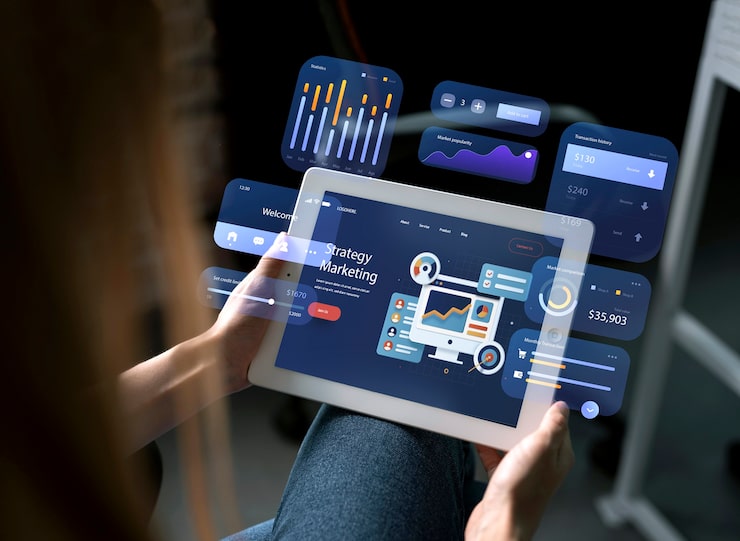Tech Productivity Apps have become indispensable tools for both students and professionals in today’s fast-paced digital world. Whether managing coursework, deadlines, or business projects, these apps streamline tasks, enhance organization, and improve overall efficiency. In 2025, productivity applications are no longer just optional—they are central to personal and professional success.
Streamlining Academic Life
For students, Tech Productivity Apps are revolutionizing how learning is approached. Platforms that combine note-taking, task management, and collaboration features allow students to stay on top of assignments and exams. For example, applications like Notion and Evernote help students create digital notebooks, organize research, and track progress seamlessly.
Real-life stories from university campuses show students coordinating group projects across time zones using productivity apps, highlighting how these tools foster collaboration and reduce stress. With adaptive learning apps, students receive personalized study plans, helping them retain information efficiently and manage time more effectively.
Enhancing Professional Efficiency
Professionals are equally benefiting from productivity apps. Tools for project management, team communication, and scheduling are streamlining daily operations in diverse industries. Applications such as Trello, Asana, and Microsoft Teams allow employees to track projects, assign tasks, and maintain transparent workflows, ensuring deadlines are met and collaboration remains smooth.
Many startups and small businesses report that adopting productivity apps has significantly increased output without increasing work hours. In an era where remote work is standard, these applications bridge gaps between team members, providing real-time updates and keeping everyone aligned.
Integrating Tech and Daily Routines
Beyond academics and business, Tech Productivity Apps integrate into daily life to improve organization, health, and overall well-being. Apps for habit tracking, meditation, and time management help users balance work, study, and personal life effectively. For instance, using apps that schedule focus sessions or track exercise routines encourages a holistic approach to productivity, combining professional efficiency with personal wellness.
Travel enthusiasts and students alike leverage these apps to manage itineraries, track budgets, and stay organized while on the move. This intersection of productivity and lifestyle demonstrates the versatility of modern tech solutions.
Collaboration and Communication Tools
A key feature of top productivity apps is seamless collaboration. Cloud-based platforms allow multiple users to edit documents, share resources, and communicate instantly. In educational settings, teachers can monitor student progress and provide instant feedback, while students collaborate on group assignments efficiently.
In corporate environments, apps provide shared dashboards for project tracking, instant messaging for quick communication, and video conferencing for remote meetings. These features reduce the dependency on emails and fragmented communication channels, allowing teams to focus on meaningful work.
Time Management and Task Prioritization
Managing time effectively is a core benefit of productivity apps. Calendar integrations, reminders, and task prioritization features help users allocate time wisely. Professionals use these tools to balance multiple projects, while students plan study sessions around deadlines and exams.
For example, apps like Todoist and Google Calendar enable users to break large projects into manageable tasks, set priorities, and track completion. Users often report higher motivation and reduced anxiety, as clear structures make it easier to navigate busy schedules.
Cloud-Based Accessibility
Modern productivity apps often rely on cloud infrastructure, providing accessibility across devices. Students can continue research from their tablet in a café, while professionals can access project files from a smartphone during travel. This flexibility is critical in a world where mobility is a key factor in daily life.
Apps with offline modes also ensure work continues uninterrupted in areas with limited internet access, making productivity truly ubiquitous. This reliability has positioned productivity apps as essential tools for dynamic lifestyles.
Personalized Workflows and Automation
Tech Productivity Apps increasingly feature AI-driven recommendations and automation capabilities. Applications now suggest optimal work schedules, identify repetitive tasks, and automate routine processes. For example, AI-powered email management tools sort messages by priority, reducing time spent on non-essential communication.
Students benefit from adaptive learning algorithms that suggest practice problems or summarize lengthy readings. Professionals gain insights on optimal task sequencing and project pacing. These intelligent features not only save time but also enhance decision-making and efficiency.
Social and Networking Integration
Another trend is the integration of productivity apps with social and networking platforms. Professionals and students can share progress, seek mentorship, or collaborate with peers beyond traditional classroom or office boundaries. This fosters networking, knowledge sharing, and the growth of supportive communities.
Influencers and bloggers frequently highlight productivity hacks using these apps, making real-world examples relatable and inspiring wider adoption. By combining networking with task management, users maximize both efficiency and engagement.
Security and Data Privacy
With increased reliance on productivity apps, data security is a crucial consideration. Leading applications implement end-to-end encryption, secure cloud storage, and regular updates to protect user data. Students working on academic research and professionals handling sensitive business information benefit from these safeguards, ensuring that productivity enhancements do not compromise privacy.
Gaming and Learning Synergy
Interestingly, productivity apps are also being adapted for gamified learning experiences. Educational apps integrate challenges, rewards, and progress tracking to keep students motivated. Similarly, professional development apps offer badges, milestones, and skill tracking to encourage continuous learning. This gamification trend merges productivity with engagement, making tasks more enjoyable and achievable.
Future Outlook
The future of Tech Productivity Apps points to even more integration, intelligent automation, and cross-platform functionality. Augmented reality (AR) and virtual reality (VR) are being tested to create immersive productivity experiences, from virtual collaborative workspaces to interactive learning environments.
As AI continues to advance, apps will not only assist with organization but actively enhance creativity, provide insights, and adapt workflows dynamically to individual needs. The evolving landscape ensures that students and professionals remain equipped to meet the demands of an increasingly complex and interconnected world.
Read also:
cheesiest menu
menu harga gacoan
mexican desserts
panera bread menu

